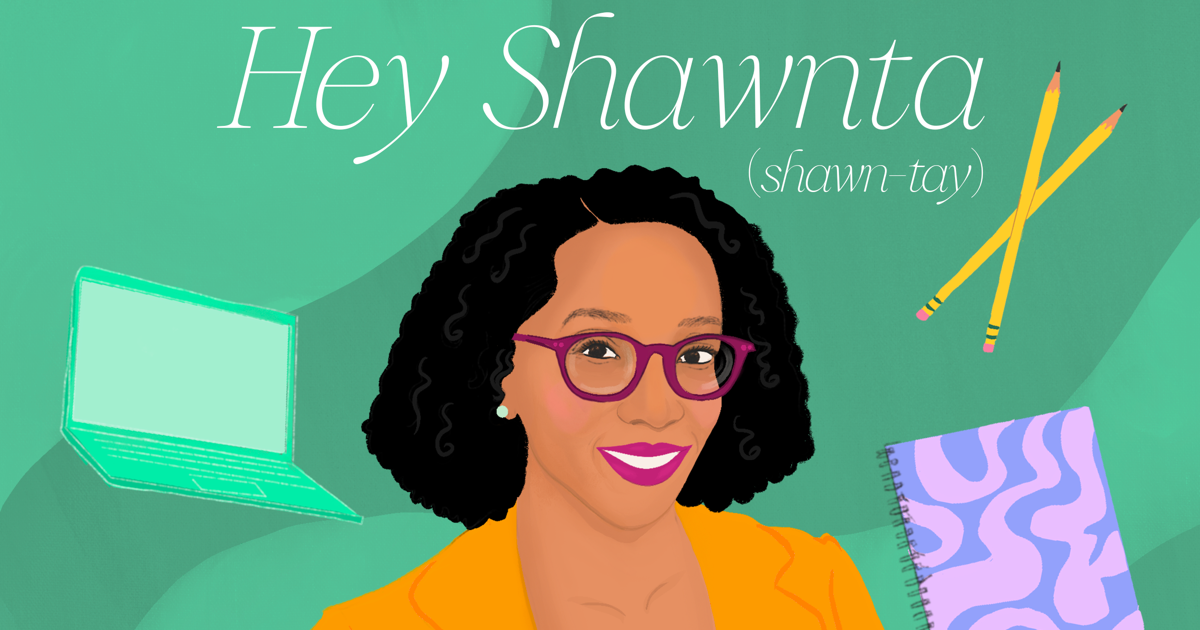
Hey Shawnta!
How can I connect with parents when I don't speak their primary language?
Sincerely,
Lost in Translation
Hi Lost in Translation,
I think it’s great that you’re already thinking about how to communicate with parents of all backgrounds, including linguistically diverse parents. Even when parents do not speak English, they want to have an active role in their children’s education.
First, don’t assume that parents cannot speak English. Work with the ELL (English Language Learner) teacher to find out which parents are not English speakers.
Next, find out the process for scheduling translation and interpretation services. Most schools have an accessible resource for Spanish, but other languages might take some forethought, especially if your school uses an external translation and interpretation service. Also, staff providing these services might not always do both. If you need both translation and interpretation, make sure to double-check.
If at all possible, don’t use the child. The child should be able to stay in his or her role as a student and not be completing a compensated role such as translating or interpreting at a meeting.
Speaking of compensation, when schools use external companies, those people get paid! Even if a colleague down the hall speaks the parents' language, and even if the colleague states not minding being asked, verify if this is a task your colleague will be compensated for. If not, do not accept their offer.
Finally, look at the parent(s) when an interpreter is talking. An interpreter is a tool, not the person with whom you are connecting. Look at the parent(s) and make eye contact the same as you would in any other parent conference.
Hopefully, these tips will clear up your communication channels, and you won’t stay stuck — lost in translation.
Shawnta
Shawnta (Shawn-tay) S. Barnes, also known as Educator Barnes, is a married mother of identical twin boys. She navigates education from not only the educator’s perspective but also the parent’s perspective. She has been an educator for nearly two decades. Shawnta works with K-12 schools, universities, & education adjacent organizations through her education consulting business Blazing Brilliance. She is an adjunct college professor, supervises student teachers, Indy Kids Winning Editor-in-Chief, Brave Brothers Books Co-founder, & CEO, and Brazen Education Podcast host. She holds five education licenses: English/language arts 5-12, English to speakers of other languages P-12, library/media P-12, reading P-12, and school administration P-12, and she has held a job in every licensed area. Previously, she has served as a school administrator, English teacher, English learners teacher, literacy coach, and librarian. She won the 2019 Indiana Black Expo Excellence in Education Journalism Award. In 2023, she completed her doctorate in Literacy, Culture, and Language Education with a minor in Learning Sciences. She is an urban gardener in her spare time and writes about her harvest-to-table journey at gardenershicole.com. To learn more about Shawnta, visit educatorbarnes.com.
The story you tell yourself about your own math ability tends to become true. This isn’t some Oprah aphorism about attracting what you want from the universe. Well, I guess it kind of is, but...
If you have a child with disabilities, you’re not alone: According to the latest data, over 7 million American schoolchildren — 14% of all students ages 3-21 — are classified as eligible for special...
The fight for educational equity has never been just about schools. The real North Star for this work is providing opportunities for each child to thrive into adulthood. This means that our advocacy...
Your donations support the voices who challenge decision makers to provide the learning opportunities all children need to thrive.
Ed Post is the flagship website platform of brightbeam, a 501(c3) network of education activists and influencers demanding a better education and a brighter future for every child.
© 2020–2024 brightbeam. All rights reserved.